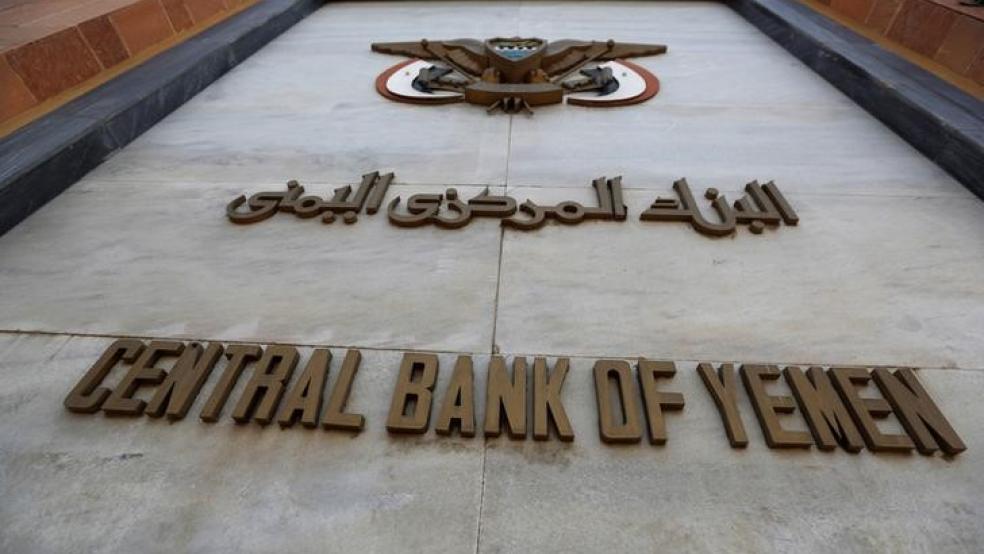Riyadh- Governor of Yemeni central bank Munser al-Quaiti said he will head directly to the central Bank’s headquarters the moment he arrives to Aden.
He told Asharq Al-Awsat: “It was necessary to be aware. I was handed an empty bank with a missing database. However, despite that Houthis are keeping the database, we will solve the salaries’ issue through the data recorded in the central bank’s branches distributed among several provinces.”
He confirmed his plan to activate the federal system in the bank after liberating it, just like U.S.A.
One week after assigning him as the governor of the central bank, al-Quaiti said it needs up till the end of this year so that the bank can initially achieve its goals.
He continued: “We do not want any performance; instead, we want the right performance for the central bank’s duties stipulated in law.”
The new Governor of the Central Bank Munser al-Quaiti is the former minister of finance.
In Mövenpick Hotel Riyadh on Tuesday, the governor pledged that the bank will be independent in Aden, and he said: “We represent the Yemeni Republic, and we are responsible for all Yemenis.”
Al-Quaiti, 61, talked about the future, consequences of this war and his reform plans to reconstruct the country based on his experience and on the 40 years of economic recession.
He said he is facing two problems. The first lies in the fact that there is no cash in the central bank treasuries, “we were able to fund economy with necessary liquidity, and this is the first mission for the central bank.”
The second problem is that there is a disabled monetary cycle since the communication channels in the monetary cycle lost confidence in the central bank.
Notably, the cycle used to operate in the following way: “The bank issues money, which is circulated within the bank’s system and among people and the surplus returns to the bank system , which will re-issue it to the market as no need to use the money saved unless in case of a gap. Sometimes, even the surplus is added to the new money issued, and this whole process has been disabled.”
The governor asked why this decision was issued late and he answered saying: “The president did not follow this procedure because he was abiding by the rules and respecting them.”
“How?” he added, and then he clarified: “In that period the board of directors were still effective and any intervention, back then, was considered encroachment on independence of the central bank.”
He added: “President Hadi preferred leaving the bank until the last moments of its legal period were it was unable to perform its duties completely; then he took his decision.”
During the legal period and its continuity, no decision was taken by the president regarding the governor and his deputy, even the partial disability in the liberated areas were not decided upon by him, al-Quaiti said.
“He waited for the legal maturation, as part of his strategic consideration for this institution and the bank’s independency, and he took his decisions when it was time for the legal independence period,” he added.
“The legal maturation obliged the president to act the moment the board of directors loses its rights in the central bank,” he said.
He told Asharq Al-Awsat that the government coordinated with Saudi Arabia and the UAE, which supported this operation and proposed moving the quartet group.
